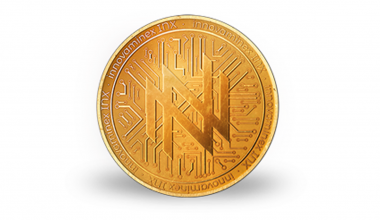This post is also available in:
![]()
![]()
The Blockchain is basically a paradigm shift, a way of understanding social relations in a globalised and totally connected world.
Can you imagine a transport service without a central entity, with all the guarantees? Can you imagine a platform for buying flats where supply and demand are directly connected? Can you imagine a mining project where you know perfectly the origin of each precious metal? That is what is really going to change the world.
With blockchain technology, we could have decentralized ownership control: the existence of the commodity would be recorded in the network at the moment of its creation, and ownership would be transferred according to the sale.
This would allow us to have complete knowledge of the legal provenance of the precious metal, in the case of Innovaminex, as well as the procedures that have been carried out and whether the extraction method has been the most appropriate and environmentally responsible.
Decentralization
This is the main characteristic of blockchain technology and here lies the most disruptive concept for our way of understanding the world.
In practically all areas of our lives, we have delegated our trust to a third party that seems worthy enough of our trust. We can think of the following cases:
- Banking institutions where we deposit our money trusting that it will be there when it is needed.
- Health system : when we ask for a medical appointment, we trust that the system will give me one of the available appointments.
- Online mapping providers: when we look up a route on our mobile phones we trust that the road exists and that the mapping provider on our phone does not take us on a side road because someone paid for it.
With blockchains, trust resides in the network itself, so there is no single entity that centralized, governs and controls the data.
In fact, going back to the more immediate case of banks, in financial transactions there is no third party, there are up to 3 entities involved: the issuing bank, which makes a transfer note; the receiving bank, which has to enter it in its database when it arrives and an independent entity such as the Bank of Spain or the European Central Bank that mediates between the two banks.
All this activity disappears with blockchain as the owner’s money is exchanged by changing the sending and receiving account, and keeping the transaction in the decentralised register, and all this in a very short period of time compared to conventional transfers.
Decentralized storage
All nodes in the network maintain the blockchain with all records. This means that we are not dependent on the data policies of a third party.
With the advent of the internet, information became accessible from almost anywhere, but we still depend on a third party to store it and make it available through whatever channels it sees fit.
With blockchain, this figure of the guardian of the information disappears, as it is distributed and the network itself guarantees its availability.
Immutability
The written blocks cannot be changed and when a new block is agreed, it is written in all the nodes, so the network acts as a guarantee against possible attempts at fraud or manipulation.
This characteristic gives us an increase in transparency because although the levels of visibility will depend on the type of network we are talking about, a blockchain network guarantees that any person with the necessary permissions can consult the transaction history, being able to carry out an audit of them without the possibility of them being altered or eliminated.
Security
One of the biggest concerns in the implementation of any blockchain technology is the security it provides against failures and attacks. Although no technology is totally secure, blockchain relies on cryptography and consensus algorithms for virtually unbreakable security.
In order to alter a record, it would be necessary to control or fool most of the network, which in terms of cost (hardware and electricity) makes it practically impossible.
This is because even if we manage to alter a record and fool the whole chain by calculating the hash of all the following blocks, when compared with the copy of the chain of the rest of the nodes, this fake chain would be discarded as it does not form a majority.
These are some of the features of the blockchain that will completely change our lives. If a project bets on this technology, it bets on the future, on decentralisation, on security and on immutability.

